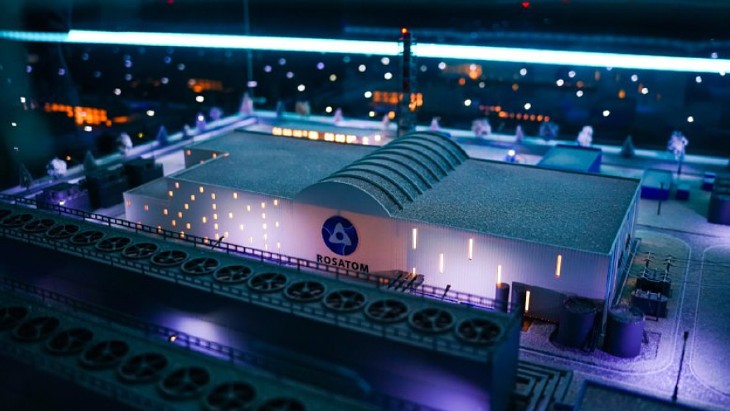Nuclear regulator Rostekhnadzor has granted a licence to build the country's first land-based small modular reactor (SMR), in the Republic of Sakha (also known as Yakutia) in Russia's Arctic north.

How a completed plant could look (Image: Rosatom/Telegram)
Rosatom's SMR is a water-cooled RITM-200N reactor that has been adapted from the RITM-200 series used to power the latest fleet of nuclear-powered icebreakers.
The licence is to build the SMR in the Ust-Yansky district of Yakutia and Rosatom noted that the reactors had already proven their ability in Arctic conditions on the icebreakers.
Alexei Likhachev, director general of Rosatom, said the licence decision was "meaningful for the global nuclear industry ... this is permission to construct the first modern land-based SMR in harsh Arctic conditions".
He said that pre-construction work was already under way, with more than 2000 tonnes of cargo delivered to the site, "there are now about 80 workers and 38 pieces of operating equipment there. The scope of work is increasing day by day. The world's first land-based SMR with RITM-200N is planned to be commissioned in 2028".
Rosatom said that the design met "all post-Fukushima safety requirements for the modern NPP design - this is a compact modular nuclear power plant, featuring reduced construction time compared with large nuclear power plants".
Last week, Rosatom and the Corporation for the Development of the Far East and the Arctic signed a cooperation agreement relating to the construction of the plant, saying "the project will provide a clean, cost-effective and stable source of energy to the remote Arctic territories of Yakutia with a decentralised energy supply. The electric power of the station will be at least 55 MW, the service life of non-replaceable equipment will be up to 60 years".
The plan outlined was for a "significant part" of the planned output to be used "to develop one of Russia's largest gold ore deposits, Kyuchus, nearby Deputatskoye and Tirekhtyakh tin deposits, and municipalities in Yakutia. This will create a powerful industrial cluster in the region with new jobs and professions".
Researched and written by World Nuclear News